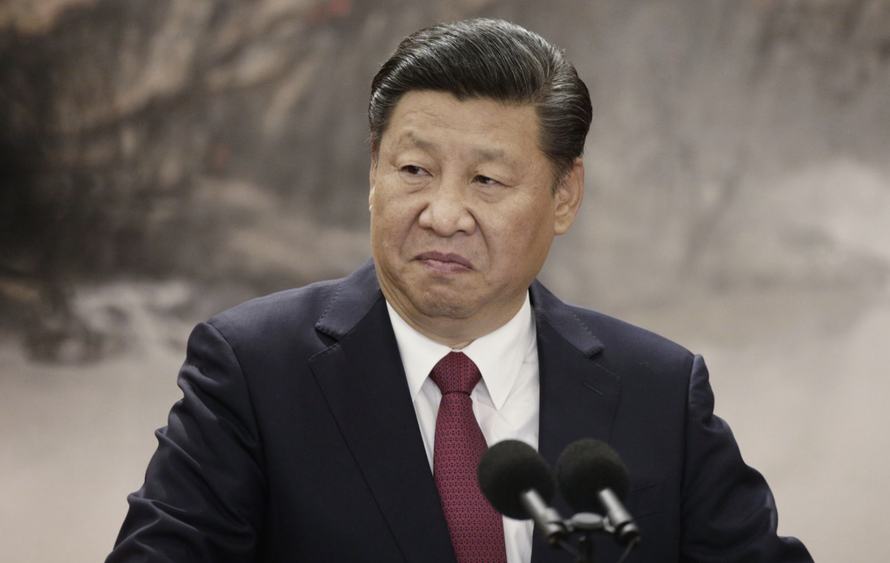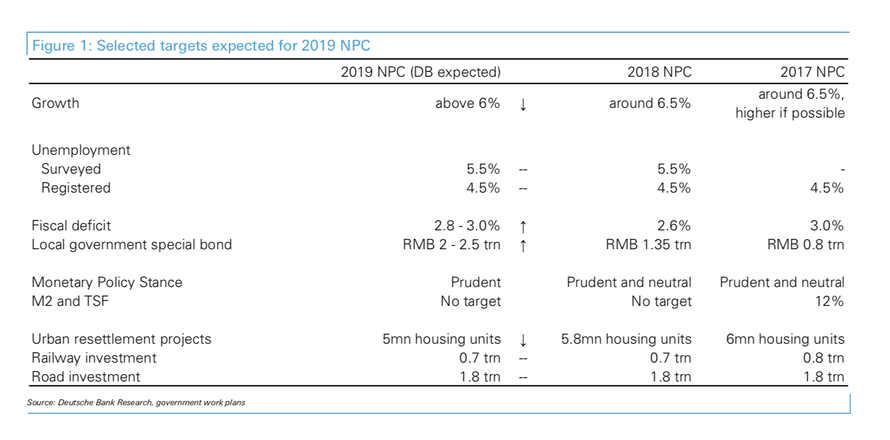One year after Chinese President Xi Jinping cemented his status as “emperor for life” by having his “Xi Jinping thought” enshrined in the Chinese constitution, the ruler of the world’s second largest economy will preside over yet another National Party Congress in Beijing this week, where thousands of delegates from China’s “two sessions” will gather to hear Xi’s policy pronouncements – economic and otherwise – during the most challenging economic environment of Xi’s six-year reign.
Members of the nearly 3,000-strong National People’s Congress (NPC) , and the Chinese People’s Political Consultative Conference (CPPCC), an advisory body, will congregate in the Great Hall of the People for the meeting. Like last year, the crowd will include business leaders like Tencent founder Pony Ma, and cultural luminaries like actor Jackie Chan and former NBA player Yao Ming.
As is typical during the annual party meeting, security forces in Beijing are going “full Orwell” by cracking down on dissenters and tightening security. According to the Guardian, dissidents are placed “under control” and shipped away from the capital. More police are stationed in the city’s subways and streets. And online censorship is ratcheted up.
The party leadership will meet amid a simmering trade dispute with the US (which delegates on both sides are reportedly working diligently to resolve). Regarding the always thorny issue of China’s human rights record, Beijing is facing an international backlash over its crackdown on minority Muslim Uighurs in the western region of Xinjiang. According to Bloomberg, the party is also worried about how its citizens will react on the 30th anniversary of the Tiananmen Square massacre, which is coming up in June.
Premier Li Keqiang will unveil the Communist Party’s growth targets on Tuesday, the first day of the NPC session, where he is widely expected to acknowledge the economic slowdown with a lowered GDP target range of 6% to 6.5% growth. Li might also unveil what Deutsche Bank expects will be 1.2 trillion and 1.5 trillion yuan in tax cuts (including a 3% VAT cut for manufacturers).
Afterward, the PBOC will also share its monetary policy outlook, which Deutsche expects will remain “flexible” since the trade spat with the US has not yet been resolved (though, as we noted, the beginnings of what looks like a “Shanghai Accord Pt. 2.0” are already surfacing in China’s financing data).
In what would indicate a slightly expansive fiscal stance, DB analysts have forecast a budget deficit of 2.8% to 3%, as well as an announcement of 2 trillion to 2.5 trillion yuan of local government financing for development projects (some of which are struggling with serious funding shortfalls, as we noted last week):
Party leaders will also share the country’s budget for the fiscal year.
While the main events from the Congress – including an address by Xi – aren’t expected until later this week during the session of the National People’s Congress, the meetings started on Sunday with a convening of the CPPCC. According to Nikkei, the leader of the body reaffirmed the party’s commitment to pursuing its economic goals, including an eradication of poverty.
“This year is a critical year for us in completing the [goal] of building a moderately prosperous society in all respects by 2020,” said Wang Yang, chair of the Chinese People’s Political Consultative Conference, or CPPCC – the country’s foremost political advisory body.
Wang listed the execution of the Communist Party of China’s guidelines as the “major task” of the year. One goal is to double income per capita by 2020 from a decade earlier. He also referred to a poverty eradication goal, which aims to lift 30 million poor rural residents out of poverty.
In front of an audience that included President Xi Jinping and more than 2,000 delegates, Wang said the country must come together amid the risks and challenges ahead.
Aside from the economic benchmarks, new laws will also be reviewed by the legislature, including a draft law that would protect foreign companies’ property rights and ban forced technology transfers – two of the US’s biggest asks from the trade talks.
Much to Xi’s chagrin, the trade spat with the US has not yet been resolved – something he had reportedly hoped to accomplish before the meeting. And while Xi’s popularity and power over the Chinese government remain absolute, he gathered top party officials for a meeting in January where he warned that the Party was facing serious obstacles, and that it’s long term rule was “not assured.”
With this in mind, expect a “much more difficult situation for Xi than last year,” one analyst said. “Last year, he was riding high,” according to Hong Kong-based political analyst Willy Lam. This year, he is facing criticism from some party members for his handling of the economy and what some perceive as a capitulation to Donald Trump.
As discontent mounts, expect Xi to remind his government who is in charge.
via ZeroHedge News https://ift.tt/2GYBKMO Tyler Durden

